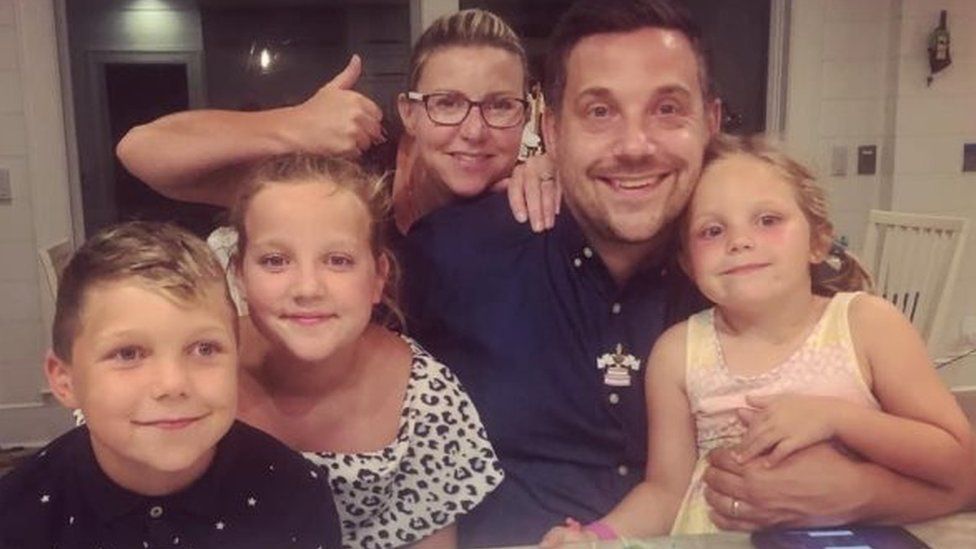'Infertile' Leicestershire science teacher had three children
- Published

A science teacher who was told treatment for a brain tumour would probably leave her infertile went on to have three children.
Amy Anderson, from Ashby de la Zouch, Leicestershire, was diagnosed with a pituitary tumour in 2007 after her body started to produce breast milk.
She said the prognosis came as she and husband James were trying for a baby.
Charity Brain Tumour Research said her story showed such tumours could affect people of all ages.
Ms Anderson, 41, a science teacher at Ellis Guilford School in Nottingham, said she sought medical treatment after suffering headaches and migraines.
When doctors examined her, the pituitary adenoma was so big, it "was pressing on the nerves behind my eyes".
"Devastatingly, I was also told it meant it was very unlikely that I would ever have children, as the pituitary influences many processes including reproduction," she said.
"I was really upset by this news; my husband James and I had got married the previous year and we were trying for a baby."
Fortunately for Ms Anderson and her husband, they found out she was pregnant in February 2008, with her oldest daughter born that November.
In May 2009 Amy lost her eyesight and suffered another headache after the tumour ruptured, leading to emergency surgery and a further warning that she could be left infertile.
However, three months after surgery she learned she was pregnant with a son, who has since been joined by another daughter, despite a further round of surgery in 2015.
Since finishing her treatment, Ms Anderson's consultant has told her the tumour is unlikely to grow back.
"In spite of all I've been though, I really do feel lucky," she said.
She is now fundraising for Brain Tumour Research.
Matthew Price, the charity's community development manager, said Ms Anderson's story showed "brain tumours are indiscriminate" and "can affect anyone at any age".
"Less than 20% of those diagnosed with a brain tumour survive beyond five years, compared with an average of 50% across all cancers," he said.
Follow BBC East Midlands on Facebook, on Twitter, or on Instagram. Send your story ideas to eastmidsnews@bbc.co.uk.
Related Topics
- Published20 April 2021
- Published13 February 2021
- Published9 February 2021
- Published30 April 2020